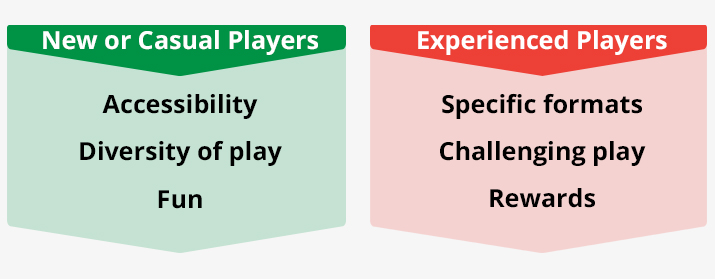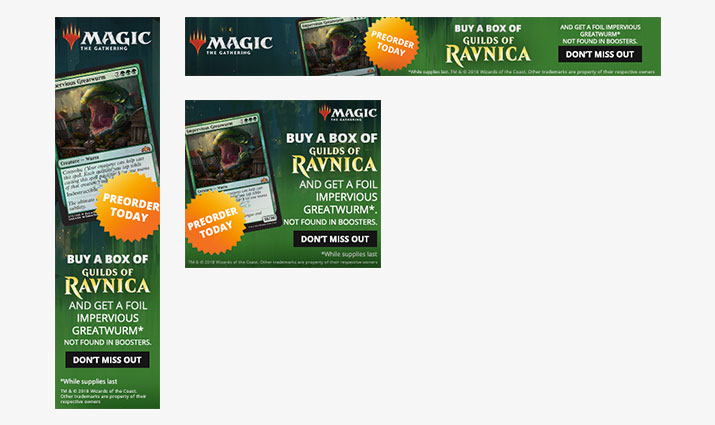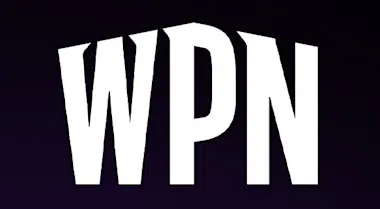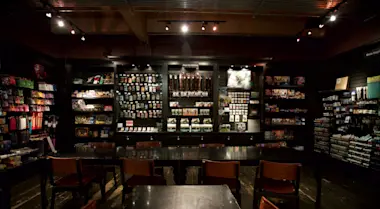Jan 12, 2019 — WPN Orientation
WPN Orientation: Event Management
Review the basics on the WPN before your first conversation.
How you manage your event calendar has a direct impact on the effectiveness of your advertising strategies. This article dives into different promotion techniques you should consider when building your communication plan.
This article will cover the following topics:
- Managing an Event Calendar
- Having a Variety of Events
- Managing a Communication Plan
- Social Media
- Prize Support Strategy
Event Calendar
Ask Yourself:
What does my calendar of events look like? Doesn't have to be limited to Magic.
Where can my event calendar be found? .
How frequently do I update my calendar? Is it synced with Wizards Event Reporter? .
For any store running events, your event calendar is as important as a menu at a restaurant. This is one of the most important communication and advertising tools you have at your disposal, so taking care to maintain it and make it readable is essential. Here is our advice for a robust calendar.
Easy to Find
There are a few places we recommend keeping your calendar.
- Store window. Perhaps it can hang in a sign facing out, so passersby can see when you have certain events coming up.
- Point of sale. If you have a monthly calendar, have it handy to give to customers when talking with them.
- Play area. Keep your future events top-of-mind as they play in your regular events.
- Welcome Deck. Create a mini calendar featuring new player events, then fold it and slip it into a Welcome Deck after a demonstration.
- Surprising locations. Your restroom is another great place to keep a calendar.
- Social Media. Share your digital calendar occasionally to engage your community in discussion about exciting future event opportunities.
- Website. Give it its own tab for people to reference.
- Facebook. If your Facebook Page has more than 2,000 followers, you can add tabs to the page. You can then embed your Google Calendar on Facebook in a few steps.
Easy to Read
Consider your calendar as a marketing tool that might reach beyond the customers you expect. Ensure that your calendar is informative and easy to read for all audiences, not just your regulars.
- No acronyms. Unfamiliar customers might look at your event calendar and not know what FNM is.
- Color coded. Make the information easy to navigate, with similar events coded the same way.
- Essential information only. Try not to bog the event description down. Include the name of the event, registration time, start time, format, cost.
- Clickability. If the calendar is digital, provide links to additional resources like a registration page, your Facebook page, or your website.
Consistent
Ensure your calendars are consistent across all platforms. Whenever you schedule a future event in Wizards Event Reporter, that’s the time to start updating your future calendars. You don’t want to run the risk of players operating on inaccurate (or out of date) information.
Help your players establish a routine by offering the same event every week. Consistency is key for regular play. However, offering a rotating “special event” schedule on a certain day of the week gives people a reason to check your calendar more often.
Event Variety
Ask Yourself:
Do I understand how to organize a Limited event (Draft, Sealed)?
Do I understand how to organize a Constructed event (Standard, Brawl)?
Do I have events for both new and experienced players?
What are my players playing? How do I know what they want to play?
There are a lot of ways to play Magic. In general, you’ll want to favor events that promote current products. If you want to brush up on some of the play formats we’ll be discussing in these conversations, here are some references:
Limited Events
Limited events like Draft and Sealed have players open booster packs as part of the event, then build their decks to compete against each other.
Booster Draft is one of the most popular formats, as it’s easy to engage with the most current set release and players often see this as an even playing field. Go here for a breakdown of the idea Booster Draft setup from Desert Sky Games' Michael Bahr.
Sealed Deck is the format of Prereleases and some high-profile premier events, where players are given six booster packs to open and play with. This is a very accessible format, especially when a player is brand new.
For limited events, you’ll be expected to have plenty of basic land cards available for your players. You can always ask your players to return the land cards to you when they’re done playing.
Constructed Events
There are more constructed event formats for your players to enjoy, like Modern and Commander, but to maximize your event accessibility it is important to have an event plan including Standard.
When players play a lot of Draft and Sealed events, they accumulate cards that they can then use for Standard.
Brawl is a new way for players to play the Standard format using just a single copy of each card in their decks. Read more about how to support the format in your store here.
Introducing New Events
Consider surveying your players occasionally and take a deep look into your play attendance. What formats are your players playing? What formats are they asking for? Is the prize support working for you and your players? Are all audiences being served?
When you’re trying to introduce a new format to your players, it’s usually best to do it slowly. If you don’t think a format will fire every week, it’s okay to space it out. Format growth also doesn’t happen without enthusiasm from the store, so be sure to build a deck in that format so you can play it you’re your community.
You can’t assume that all your players will fit neatly into one event mold. It’s important to diversify your event options and tinkering with prize support is one way to accomplish that.
Rewards and Motivators
Ask Yourself:
What does my prize support look like for a casual or new player event?
What does my prize support look like for a competitive event?
What do my players want out of prize support?
What inspires a player to participate in your events? The answer will likely vary between players, regions, dates and times, and other miscellaneous factors. The one variable you have control over is your prize support offerings, and our best advice is to approach prize support strategically.

Events for New or Casual Players
New players need accessible formats to make it easy for them to join an event. When designing an event plan, consider what motivates a new or casual player to participate in your events.
Motivators:
- Accessibility
- Diversity of Play
- Fun
New players are not generally sensitive to rewards for play. For them, the reward is the experience of either playing the game or participating in your community. The same can be said for many casual players that tend to play infrequently or at home.
To maximize event appeal for these players, we advise the following approach.
Flat Prize Structure. Prizes are distributed to either most players or all players evenly.
No Top Prizes. Removing prize incentives for winning largely eliminates pressure of competition and allows the event to be focused more on the experience of play. Try running an event with no rounds or specific pairings and just let your players mingle.
Creative Rewards. If other rewards exist, consider giving them to players for non-competition-based behaviors. (i.e. Sportsmanship, being new to the game, bringing a friend, most creative deck, cool plays) Events for Experienced Players
This player group is the most vocal, so they are the players you’ll hear the most from about their preferences. This makes them an easy group of players to work with.
Motivators:
- Specific Formats
- Challenging Play
- Big Rewards
Experienced players appreciate being able to play their preferred format regularly, with occasional opportunities to compete to win big prizes. They still play in events like Prereleases and Friday Night Magic, but if you offer events that cater specifically to the experienced players, you’ll help them find play opportunities with more challenging opponents.
To maximize event appeal for these players, we advise the following approach.
Top-Heavy Prize Structure. Reward players for making it to the top in a tournament.
Predictability. Experienced players can spend weeks fine-tuning a deck to compete with, so they are more sensitive to changes in your events.
Tighter Rules Enforcement. These players are generally sensitive to the official rules and being rewarded for playing well. Rules leniency is good for store-level events, but for larger events with a lot on the line consider brushing up on the official Magic Tournament Rules.
Common Prizes
Here are a few additional thoughts on common prize support options.
Booster packs. Offering booster packs is an easy way to calculate your prize payout. This also helps you cycle through inventory faster.
Accessories and products. Deck boxes, sleeves, playmats. This can also be a clever way to move inventory you find difficulty selling directly.
Non-tangible rewards. For more casual events, more creative rewards can add to a fun and inviting atmosphere that doesn’t lean on competition. Take a photo of the winner with a store trophy, add their name to a plaque or hang their photo in your store, invite all the winners in a series to a pizza party.
Store credit. While store credit is a common option for many stores, be cautious with it when starting your business. Store credit may reduce your potential to effectively monetize your products and events. If you choose this approach, be sure that you have a clearly outlined store credit policy that you have measured carefully.
Communication Plan
Ask Yourself
How do I promote events? Where am I promoting? When do I promote?
Am I effectively using the WPN Marketing Materials?
We find it more useful to break down your marketing efforts into three categories: in-store, out-of-store, and online. Have a strategy for each customer touch point and control your message.
In-Store Marketing
It goes without saying that you’ll want to advertise within the walls of your store. This will reach your existing customers, friends and relatives of those customers, and random walk-ins. Plan for how these customers receive information about upcoming events and products.
Point of sale. Curate talking points so that you and your staff can promote upcoming events and products to customers as they check out. Consider a small printout with a specific call to action (like “Sign up now!”) that can be easily read near your display.
During your event. Before each event, take advantage of your captive audience by quickly mentioning future opportunities for your players. Keep your upcoming events top-of-mind and give them something to talk about while they play.
Posters and fliers. Use our marketing materials! You can download and print large posters, fliers, achievement cards, checklists, registration sheets, and table numbers, as well as special items that help you advertise in clever ways. Our team of Trade Marketing Specialists curate these materials for each set, so be sure to check back regularly to update your options.
Our advice? Take down older marketing posters and try to only use posters and marketing materials that help you move current sets and products. Simplify your message and strengthen your marketing efforts. Out-of-Store Marketing
Advertising inside your store can only get you so far. Reach out to local schools, libraries, and other community outlets to reach audiences you wouldn't have otherwise.
School outreach. Go here for tips from Stronghold Games on starting a school outreach program.
Newsletter. Collect player’s email addresses when they register for events and subscribe them to your store’s newsletter. This is a great place to highlight recent and upcoming events at your store.
Conventions. Look around for opportunities to host demonstrations for your games at local or regional conventions. This is a great place to spread the word about your business and generate new interest.
Community outreach. Get involved in your local community’s events. Sponsor a little league baseball team or invite your players to a beach clean-up day.
Paid advertising. We typically advise looking for free or cheaper marketing opportunities before you go for big expenditures. For more insights on paying for advertising, check out this article.
Marketing for the Web
It’s a no brainer that your store should have social media presence. Just like with in-store advertising, it’s better to have a consistent strategy in place so you stay consistent, professional, and on-message.
Use current marketing assets. Download web banners, splash images, and animations from our collection of marketing materials to promote events on your store’s website and social media platforms.

Measure success. Make sure your marketing is worth the effort by using tools to analyze and evaluate the success of your social media marketing. Check out this article to learn more about these tools.
Highlight your community. A great way to promote your store’s events is to take photos (with your players’ permission) showcasing them. Celebrate the winners at your events by having them pose with their prizes or show off amazing decorations you put up for parties.
Top Takeaways
Have a healthy mix of events and promote them effectively. Here are our top talking points.
- Have a communication plan. The way you talk about events should be thorough and consistent.
- Your event calendar should be accessible. It's as important as a restaurant menu. Summarize your activities for all audiences.
- Understand how prize support influences event appeal. Different prizes motivate different players.
- Be engaged with your community. Use social media to highlight your events and stay top-of-mind.




